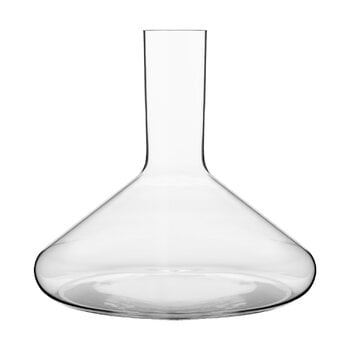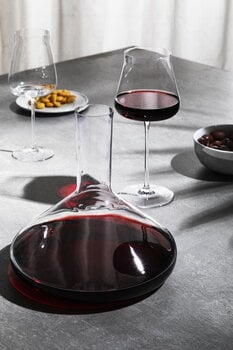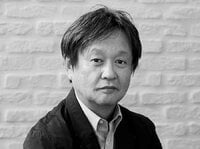Alessi's Eugenia decanter is part of a glassware collection designed by Naoto Fukasawa, created to complement both everyday and special occasions. Equally suitable for aerating and serving wines, this decanter has a downward flaring shape that, together with the softly contoured base, creates a beautifully curved silhouette.
The name of the Eugenia glass collection pays homage to Alberto Alessi's winery "La signora Eugenia e il passero solitario," translating to "Mrs. Eugenia and the Lonely Sparrow", and the shape of the winery's bottles served as a starting point for Naoto Fukasawa's design. Made from clear, lead-free crystalline glass, the Eugenia glassware features a clean, minimalist design, making it extremely versatile in any setting. The unifying feature of the glasses is their subtly obtuse angle, which gives each piece in the collection a slightly different yet recognizable shape.







